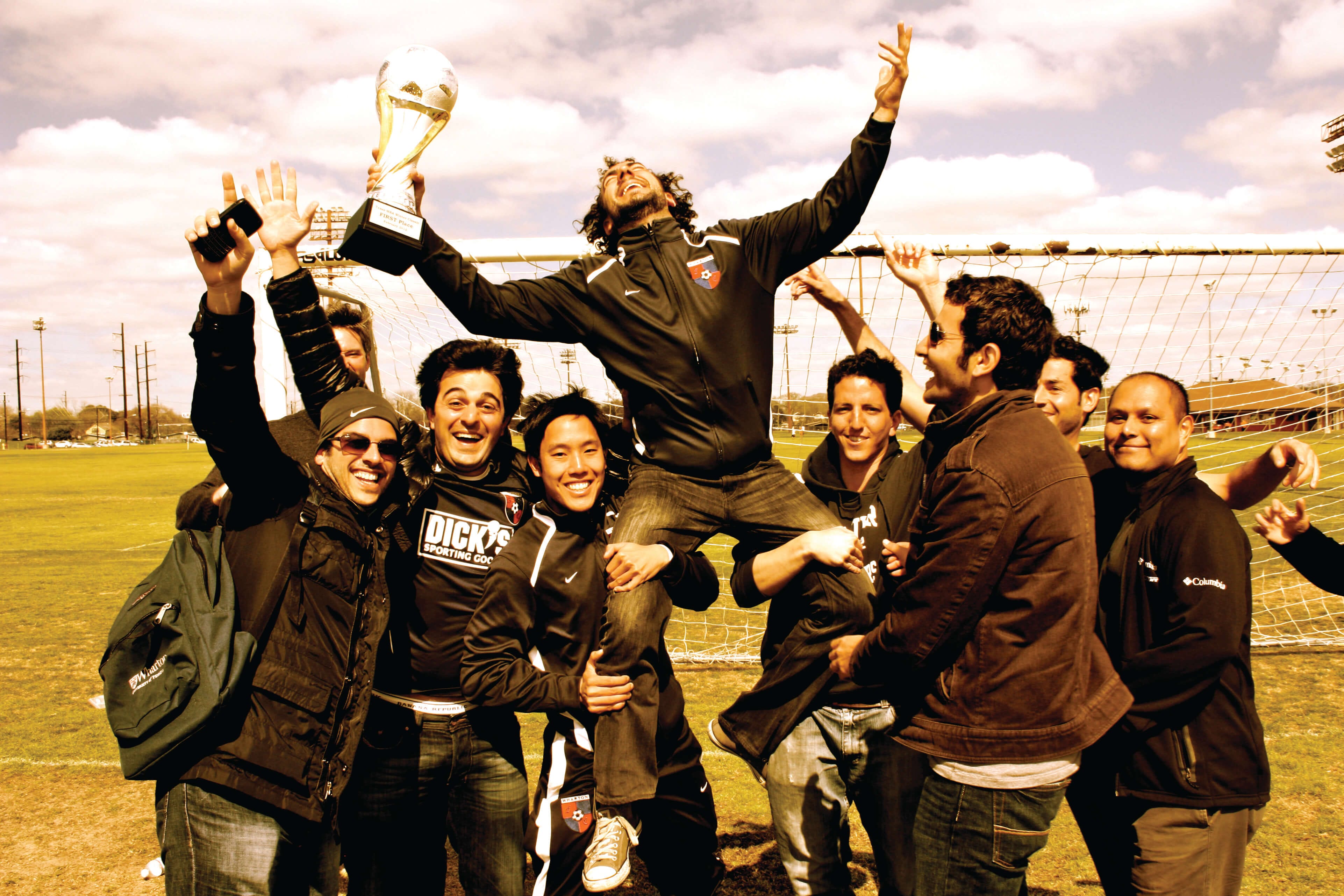It is said that Americans are not interested in soccer because it is a sport they cannot win. This cannot be said about Wharton’s MBA students.
The Wharton Soccer Club pulled off a joyous and grueling performance in late February at the University of Texas Winter Classic, considered the premier B-school footballers’ tournament.
“It is not easy to win this tournament,” says defenseman Tomas Gazmuri, WG’12, the club’s captain.
The Wharton Blue team battled to a 2-0-1 record during the group stage on day one. It was in fact the 2-2 score of its first game of the day versus Columbia that empowered the 18-man squad.
Yes, in soccer, a tie versus a highly respected opponent—Columbia won the Yale tournament in the fall—can lead to great things. In Wharton’s case, they dominated their next two groupstage foes, pouncing on NYU 6-0 and dispatching Chicago 4-0.
“We knew from the beginning we had the best team,” says Gazmuri.
Yet Wharton needed to win three more games on day two. They pushed aside Stanford in the quarterfinal 2-0. In their next battle against Berkeley, they controlled the pitch but didn’t put away the game-winner until 10 minutes remained.
The squad saved its most storied heroics for the final versus UCLA—the tourney’s defending champs had been undefeated throughout the weekend.
Wharton left it all on the field. They ran the ball, pressing their advantage of endurance and a deep seven-man bench. Finally, in the last minute, it paid off. A long punt by Xavi Genis, WG’12, with assists by then-first-year Peter Gajdos and co-captain Aymen Mohib, WG’12, ended with a dual between UCLA’s goalkeeper and Fabio Carrara, WG’12, who subbed into the game just minutes before. Carrara beat the goalie with a brilliant header into the net.
“We celebrated like it was the World Cup,” Gazmuri recalls.
His team, he says, showed not just fitness and talent after six games in two days, they also displayed grit, the “willingness to win.” The Blue team—and the White team, a more recreational bunch who lost out in the group stage—took something home with them besides their trophy: memories and camaraderie that won’t have to be defended at the next tournament.

























